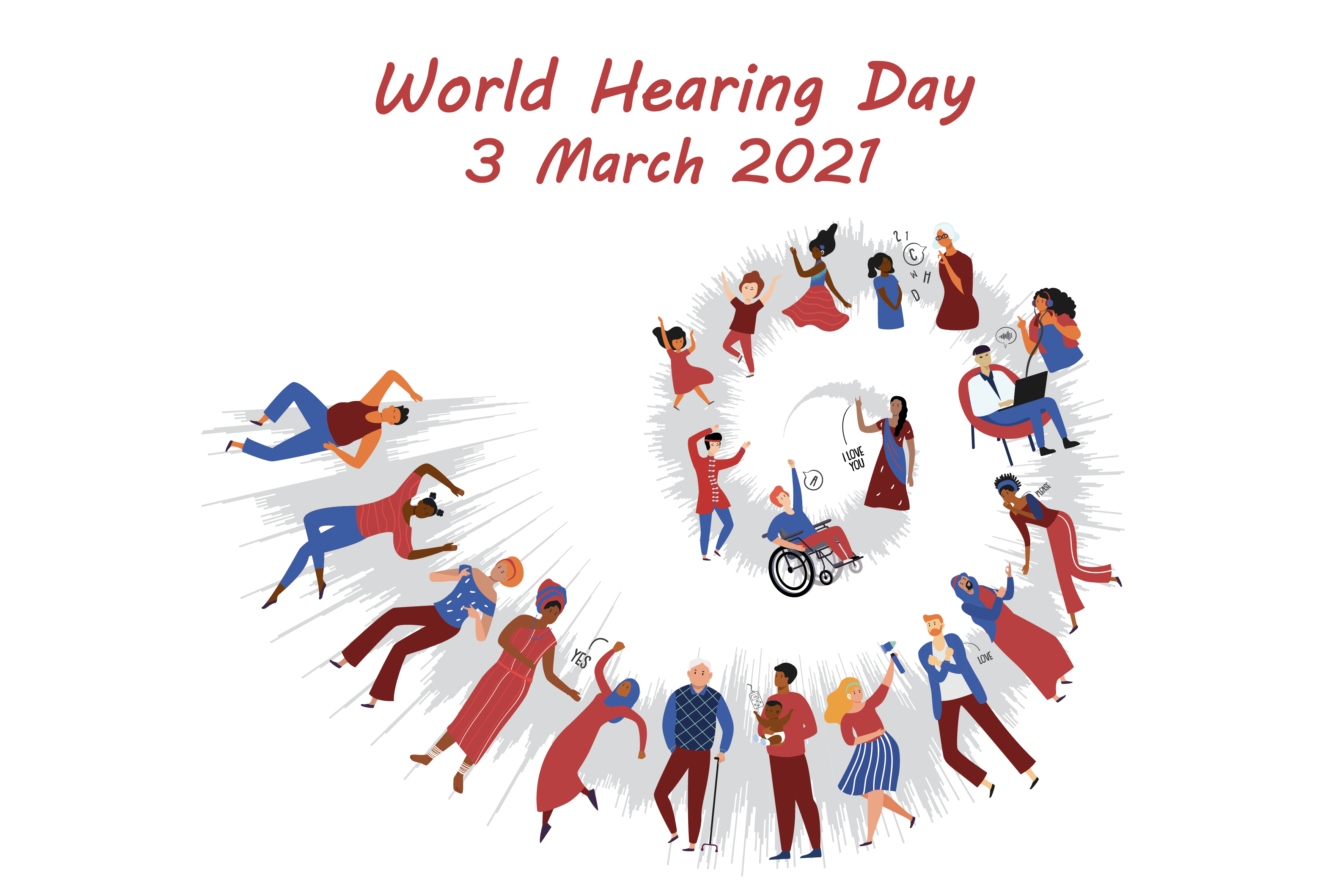- Home
- Home Care Services
- Disability Support NDIS
- Home Care Packages
- Resources
- Blog
- Contact
- COVID-19

Right at Home Blog
Right at Home Talks about Hearing this Hearing Awareness Week in Australia
Right at Home talks about World Hearing Day! As most people over the age of 70 experience hearing loss, Right at Home provides you with information you should know. A World Health Organization initiative, this year’s theme is Hearing Care for ALL! Screen. Rehabilitate. Communicate.

World Hearing Day is held on the third of March each year to raise awareness on how to prevent deafness and hearing loss and to promote worldwide ear and hearing care. It coincides with Hearing Awareness Week in Australia.
Hearing Loss in Australia:
-
Hearing loss is costing Australia $15 billion a year in health system costs and lost productivity.
-
Hearing loss affects 70% of people over the age of 70 as has a major impact on their quality of life.
-
Hearing loss is more common than heart disease, cancer and diabetes
-
500,000 hearing aids are bought every year in Australia
Hearing loss is defined as one of three types:
- Conductive (involves outer or middle ear)
- Sensorineural (involves inner ear)
- Mixed (combination of the two)
The degree of hearing impairment can vary widely from person to person. Some people have partial hearing loss, meaning that the ear can pick up some sounds; others have complete hearing loss, meaning that the ear cannot hear at all (people with complete hearing loss are considered deaf). In some types of hearing loss, a person can have much more trouble when there is background noise. One or both ears may be affected, and the impairment may be worse in one ear than in the other.
As we get more reliant on technology for convenience, we start to use items such as earbuds and headphones. Earbuds are essentially a pair of tiny speakers that you wear inside your ears. Loud music playing that close to your eardrum can cause permanent hearing loss.
Hearing loss from earbuds is an example of a condition called noise-induced hearing loss (NIHL). This kind of hearing loss is becoming more of a problem among children and teens.
Share this information with your loved ones including children and grandchildren so they may carefully use items such earbuds and headphones and look to introduce habits to prevent hearing loss.
If you or a loved is experiencing hearing irregularities, don't hesistate to contact your local health professional. Hearing Loss can impact relationships, personal confidence, personal safety and the socialisation aspects of life for you or for an aging loved one. If you are living with a hearing impairment and need a little extra support or care, contact Right at Home. We can provide a number of in-home care or support services to suit your specific needs.
Keep up to date with COVID 19 information on the following links:
Australian Government Department of Health
Victorian Health and Human Services
Tasmanian Department of Health
Northern Territory Department of Health
Founded in 1995, Right at Home offers in-home companionship and personal care, and assistance to seniors (elderly and aged care), and any adult who needs our care at home including adults living with a disability who want to continue to live independently or age in their home. Right at Home is your local expert for issues related to caring for your loved ones and is dedicated to keeping you informed about home care. With no admin or subscription fees Right at Home allows you to get more care from your package or budget.
Right at Home is a 'My Aged Care' government approved, home care provider for levels 1 – 4 and offers flexible in-home care services such as nursing care, after hospital care, post-operative care, respite care, dementia and Alzheimer's care. Right at Home also offers assistance with daily living and personal care such as grooming, hygiene, transport, shopping, meal prep, domestic services and social support, so your loved one can enjoy a more independent, vibrant life. Our nurses and caregivers are screened, highly trained, and insured prior to entering your home so you can trust us with the caregiving while you focus on your loved one.
To find out more, please give us a call on 1300 363 802 or visit our website.
Right at Home Offices in Australia: Sydney Lower North Shore; Sydney Upper North Shore; Sydney Central and Eastern Suburbs; Sydney Northern Beaches; Sydney North West; Sydney The Hills; Padstow St George; Macarthur Penrith; Newcastle; Hunter & Port Stephens; Southern NSW; Toowoomba- Darling Downs; Sunshine Coast and Gympie; Mackay; Central Queensland; Townsville; Far North Queensland; Gold Coast South; Gold Coast North; Northern Rivers; Brisbane Bayside; Brisbane South; Brisbane North; Brisbane West; Perth Midland; Perth Northern Suburbs; Perth West Coast: Kalgoorlie Wheatbelt; Moreton Bay Region; Sydney Inner West;
Subscribe to our newsletter
Sign up to our newsletter to receive our latest news and information.
Blog Categories
Enjoyed reading our blog?
Subscribe to our monthly newsletter and receive all the best content from across the Right at Home Australia network straight to your inbox.
Our Locations
Queensland
New South Wales
Western Australia
Australian Capital Territory
South Australia
Victoria
Our Locations
Central West New South Wales
Gosford
Hunter & Port Stephens
Macarthur Penrith
Newcastle
Northern Rivers
Padstow St George
Southern NSW
Sydney Central & Eastern Suburbs
Sydney Five Dock
Sydney Inner West
Sydney Liverpool
Sydney Lower North Shore
Sydney Norwest
Sydney Northern Beaches
Sydney Parramatta
Sydney Ryde
Sydney Sutherland Shire
Sydney The Hills
Sydney Upper North Shore

© Copyright 2024 Homecare Group Pty Ltd ABN 31 166 722 658 ALL RIGHTS RESERVED
Right at Home, Unit 4 16-36 Nile Street 31 Woolloongabba, Brisbane QLD 4102


